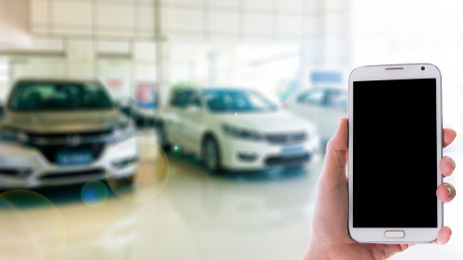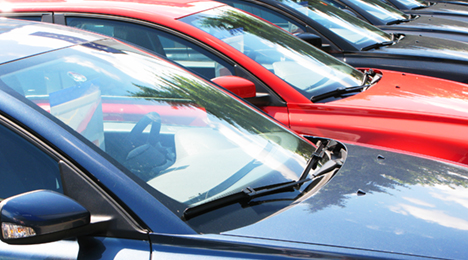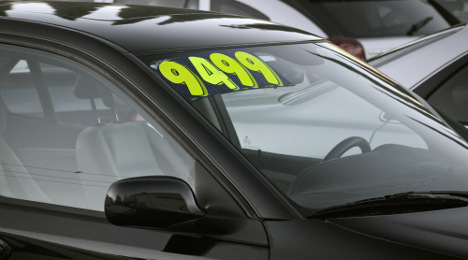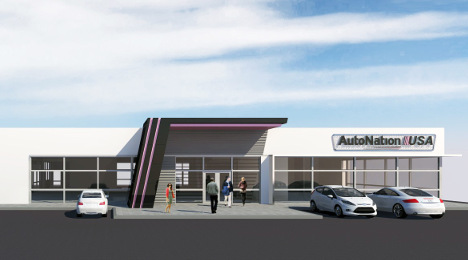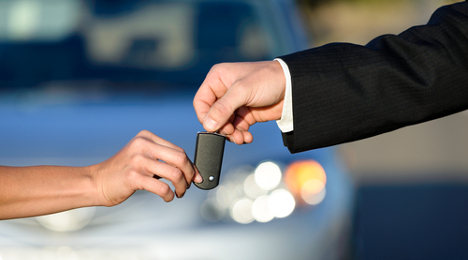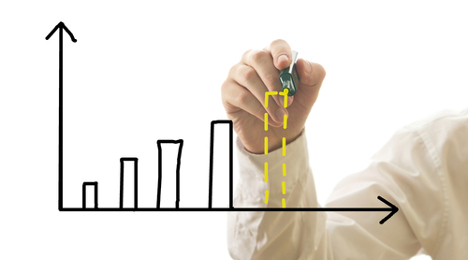Customers of Fletcher Jones Auto Group’s Mercedes-Benz dealerships now have access to a digital sales and finance app powered by AutoGravity.
AutoGravity’s FJ Drive app, for iPhones and Android devices, enables Fletcher Jones’ customers to enjoy a seamless car shopping and financing experience that lets them choose from a large selection of Mercedes-Benz vehicles, secure a loan or lease through FJ Drive, and pick up their Mercedes-Benz at the Fletcher Jones location of choice.
AutoGravity uses proprietary technology to connect car shoppers, lenders and dealers. The company’s collaboration with leading banks and captive lenders provides users with up to four personalized auto finance offers. AutoGravity offers its one-of-a-kind smartphone-based car sales and financing experience with AutoGravity branded iOS, Android and Web apps, and partners with select OEM, lender and dealership brands to offer branded experiences, powered by AutoGravity, for their customers.
“FJ Drive powered by AutoGravity is a new platform that delivers an unparalleled mobile car shopping and financing experience right to the smartphones of the rapidly growing segment of tech-loving millennials,” said Andy Hinrichs, founder and chief executive officer of AutoGravity.
“The innovation-driven team at Fletcher Jones is embracing AutoGravity technology to set another benchmark in the increasingly digital world of automotive sales and finance.”
Shoppers simply choose the Mercedes-Benz they wish to buy, select their preferred Fletcher Jones Mercedes-Benz dealership, customize the terms of their loan or lease and apply for indirect financing with AutoGravity lenders, including Mercedes-Benz Financial Services. They can then take their approval to the showroom to pick up their vehicle.
“Our whole industry is going digital. By launching FJ Drive powered by AutoGravity, we’ve cemented our standing on the forefront of innovation and positioned Fletcher Jones to pull ahead and win with an unmatched digital car shopping and financing experience,” said Keith May, president of Fletcher Jones.
“AutoGravity is the clear technology leader in this space and Fletcher Jones works only with the best. Our partnership with AutoGravity extends our reach and empowers our guests through their favorite technology, anytime and anywhere they want.”
Both FJ Drive and AutoGravity are available for download on Apple devices running iOS 8.4 or higher from the App Store and Android devices running Android 4.1 or higher from Google Play.
AutoGravity said additional app features, network expansions and broader accessibility options are under development and will be announced shortly.
Editor's Note: Garth Blumenthal and the team at Fletcher Jones Motorcars — which are part of the dealership group— is Auto Remarketing’s 2016 CPO Dealer of the Year, sponsored by NCM Associates.
Not surprisingly, AutoNation chairman, chief executive officer and president Mike Jackson spent most of the company’s quarterly conference call this past Friday explaining why the dealer group is embarking on an aggressive used-vehicle expansion project.
After reiterating what the company announced just before greeting Wall Street observers as well as the group’s third-quarter performance, Jackson began by stating the seed for AutoNation USA took root and began to germinate about five years ago. And it stemmed from what’s happening in the new-vehicle space.
“You have to take into consideration that the new-vehicle market is definitely cyclical with one to three phases: growth, plateau and decline,” Jackson said. “Now, you can be in plateau quite some time, but plateau brings a whole other set of issues.
“So if I go back five years ago, anticipating that plateau would eventually arrive, I said I need a strategy that we can take much more of our destiny in our own hands and continue to grow the business,” he continued. “Now to be able to do that successfully, I felt we needed two foundational elements. One was a brand that was well known in the marketplace already. And a digital capability that we knew could deliver sales. So we’ve done both of those steps successfully with the AutoNation brand. And with our AutoNation Express launch, it now delivers almost 30 percent of our sales from those sites.
“So having taken that step as preconditions, in order to give us the confidence that these stores would turn profitable quickly, we knew we needed a value equation for the consumer and an outstanding experience,” Jackson went on to say. “We know the customer craves fairness and transparency and price. And that means they need to be One Price. So then we said, well the brand has to be in alignment between our existing franchise business and this extensive business; therefore, we have to One Price our existing pre-owned business. That started already this year, as a conditional element, and has gone extremely well, and we will have all AutoNation franchise pre-owned One Price sometime at the beginning of next year, but certainly by the time the first AutoNation USA Stores open.”
Along with those online activities, AutoNation USA locations are going to be standalone pre-owned vehicle sales and service centers. Those facilities also will offer AutoNation-branded parts and accessories.
“These AutoNation USA stores have a customer care component,” Jackson said. “We wanted a value story there. We do very well taking care of cars that are new-to-5-years-old, 6 years old, 7 years old, and then there is a big drop-off. So we want to attract that market, but we need a value equation. So, we’re a significant purchaser of products already today. So we went through major suppliers and negotiated exactly what the consumer would want and are launching AutoNation-branded parts and accessories.
AutoNation confirmed that it’s using $500 million in capital to get AutoNation USA going.
“We’re highly confident of the degree of trust from the customer because of the AutoNation financial products that we’d already launched,” Jackson said. “Again, we went through the major suppliers. Say we have a profound understanding what the consumer wants, here’s the value equation we have to meet, but now the customer has to trust the product and so it has to be branded AutoNation. And we see already that the adoption rate in all the AutoNation-branded stores is approaching 95 percent of the AutoNation customer care products.”
Jackson also touched on how other firms have endeavored to do what AutoNation is doing.
“Referring back to megastores, I was here for that and there were many customer-friendly elements that I liked. There were cradle-to-grave elements that didn’t make sense, like the whole linkage between the rental car business and the megastores,” Jackson said.
“The megastores, having said that they had many customer elements that were to be admired, were conceptionally completely the wrong size and scale with no ability to fix it. And most importantly, there was no alignment between the franchise business and what would be this freestanding business. So, conflict was inherent,” he added.
So why is Jackson confident?
“All those issues are resolved today, and we now move into this brand-extension step with many more elements in alignment with the existing business and in a very strong position with the goal of having much more control over our destiny,” Jackson said.
“What we see is a significant opportunity to grow in the much larger pre-owned business, but doing it from a position of strength,” he added.
Growth in wholesale activities
Jackson addressed not only how AutoNation is going to procure inventory to fill these AutoNation USA locations, the dealer group boss also touched on why the company is delving deeper into the auction business.
First, AutoNation explained how it will find the inventory that will turn at these new stores.
“Obviously, we’re going to need a lot more inventory. And we’ve worked very hard to build a central acquisition team to do that. Then we can supply incremental product both to our existing AutoNation franchise business and the AutoNation USA stores,” Jackson said. “It’s the reason we’re building an auction system for what we do acquire in trade. That we have a very good way to balance inventories, and I’m not worried about supply. I think we have that pretty well thought through.
AutoNation chief operating officer Bill Berman then joined the conversation.
“What I would add is, once again because of our centralized capabilities, we have access to inventories that not everybody else has,” Berman said. “We will be buying from auctions to a limited extent. There’ll definitely be the ‘We’ll buy your car component,’ which is to sit here and attract inventory from consumers that are not looking necessarily to purchase a vehicle. Plus, we have our current source of inventory which comes from trade-ins from our existing stores.
“Plus, with the influx of cars coming off of lease over the next 12 to 18 months, there’ll be additional inventory that’s going to come in at the existing new car franchise. Of course we’ll not be able to handle all of it, and we’ll be able to use that inventory to help supply our USA stores,” he added.
AutoNation owns and operates a successful wholesale auto auction in southern California, which processes more than 25,000 vehicles annually. With an opportunity to leverage its expertise and expand in an attractive growth market, the company plans to open four additional AutoNation-branded auto auctions over the next two years, starting in Orlando, Fla., and Houston during the first half of 2017.
“We’re finding the auction system that we have in California gives us outstanding market information and gives us the highest value for the vehicle that is not appropriate for us to retail, so that auction is very profitable for us,” Jackson said.
“I think building an auction system across the enterprise to run this integrated AutoNation pre-owned one-price system is a key component. And we think, yes, it will be profitable in and of itself,” he went on to say.
Assessment of automaker stair-step program
One topic Jackson addressed that wasn’t closely connected to the AutoNation USA project was how automakers might be leveraging stair-step sales strategies. Jackson referenced back to comments he made at the beginning of the year.
“I said those manufacturers who pursue stair-steps that result in multi-tier type pricing, it will be a disaster and very disruptive in the marketplace,” Jackson said. “Most manufacturers did not go down that road. Most manufactures, I give them credit, are running the business in a very disciplined way successfully with an eye on the future, and I see nothing to alarm me.
“Those who embraced stair-steps, whatever you want to call them, in the short-term, yes, you get a pull forward in sales, but over an extended period and certainly by the third quarter, it’s an extended period, clearly, it’s indisputable that these multi-tier pricing systems are so unpopular with the vast majority of customers and retailers that your business begins to decline,” he continued.
Jackson then mentioned how one domestic OEM is proceeding appropriately, in his opinion.
“If I bifurcate the world into disciplined and undisciplined, or rational and irrational, and look at the numbers, basically retail or the disciplined rational group is flat and it’s down 6 percent,” Jackson said. “For the stair-steppers, it’s eroding significantly, meaning it’s unsustainable.
“Now, I salute a company like Ford Motor Company that endeavored with their steps. They stepped away and have taken a much longer, disciplined view. They’re to be congratulated,” he continued.
Jackson then cited one foreign OEM that he disagrees with strongly over stair-step policies.
“The one practitioner who is still absolutely convinced that stair-steps is the way to go is Nissan, and obviously a very contentious situation at the moment,” Jackson said. “And the end of that story, I don’t know, but I do know it’s very disruptive to the Nissan business. I will have to see what happens there.
“But I think in principal, I think this is the big message,” he continued. “In principal, the whole industry has watched this story unfold in 2016. You cannot make the case that stair-steps work, and then what you see is they start dumping more into fleets to try to cover up the fact that it’s not working at retail. My view is it's unsustainable. But how it plays out with Nissan, I don’t know.”
When Penske Automotive Group hosted its third-quarter earnings call this week, chairman Roger Penske had some pleasing news.
Used gross profit per unit in the U.S. was up by $179, he said — “and that’s across all brands.”
When asked during the Q&A portion of the call what was driving that kind of performance, especially compared to what other public dealer groups have reported, Penske cited the company’s “second channel”: young used cars.
“We have decided that because of CSI requirements, we probably have it at one of our premium brands, maybe almost 3,000 loaner cars. But we have decided to turn those quicker and we get benefits for putting them in a loaner,” Penske said. “We get the discount, then we depreciate those for two or three months. And we have got a vehicle that we can lease to a customer for $60 or $70 less than a new one. They get all the warranties and everything else with it.
“So we found that to be quite good for us from an offense perspective, and we have seen that be very successful in the premium side.”
Penske’s certified pre-owned business is up, too, he said, with sales of certified pre-owned representing about 40 percent of used unit sales in the U.S. during Q3.
Penske also touched on some of the benefits of off-lease.
“We are seeing a lot of cars coming off lease,” Penske said. “That’s going to grow slightly next year. We think that’s good because the manufacturers have to take these to market. There will be some hit that they will take, because as you have seen the shift from cars to SUVs, the cars have probably taken a bigger hit on residual value. So when they wrote those leases 27 months or 36 months previously, they probably had to take some impact.
“But they are going to provide us with very good used cars. They give us the ability to certify those,” Penske said, adding that it’s allowed them to grow their used-to-new ratio.
“So to me, the benefit we have is that we have already started to receive these vehicles during the last, I would say, 12 months. And our teams are committed to grow the used-car business,” he said.
Penske talked about the benefit of used units that the company has sold and leased in the past.
“They are offered to us first before they go to auction. So typically, we know these cars. We have the service records in-house,” he said. “It will give us a chance to be able to take those and certify them and put them into the used market.
“So overall, I think it’s important to know that the leasing is done mostly through the captives, which makes a big difference. So we get them to give us those vehicles back, and now they have some leasing programs even on the cars that they have leased and we re-leased to our used-car customer.”
At the same time the dealer group made grand announcements about significant broadening of its used-vehicle operations, AutoNation wrapped up the third quarter by keeping its gross profit on its used-car retail sales intact on a year-over-year basis.
AutoNation reported on Friday that its Q3 gross profit per used vehicle retailed through its dealer network ticked up by $6 to come in at $1,519. Through the first nine months, that per-unit gross is off a bit year-over-year, softening by $64 to settle at $1,555.
While confident about its used potential to make aggressive plans, AutoNation’s used-vehicle retail sales figure in the third quarter did come in a little lower compared to what the company’s stores generated during the same time period in 2015. AutoNation retailed 55,760 units in Q3, which was 1,616 units less than a year earlier.
Through the first three quarters of 2016, AutoNation has turned 170,500 used vehicles, which is 1.7 percent off of the pace the group enjoyed a year ago.
Helping the company overcome any struggles it might be having in moving used metal is what AutoNation is producing in the F&I office. The company reported a $48 lift in F&I gross profit per unit during Q3 as the reading jumped to $1,594.
Through three quarters, AutoNation indicated that its F&I gross per unit stands at $1,601, representing a 4.7-percent improvement year-over-year.
On the new-model side, AutoNation sustained third-quarter decreases in both unit sales (down by 3.2 percent to 88,322 vehicles) and gross per unit (down 6.1 percent to $1,791).
Altogether, AutoNation reported that its Q3 net income from continuing operations totaled $108 million, or $1.05 per share, compared to net income from continuing operations of $119 million, or $1.05 per share, for the same period in the prior year.
The company estimated that the Takata airbag recall negatively impacted Q3 net income from continuing operations by approximately $6 million after-tax, or $0.06 per share.
At the end of the third quarter, approximately 14 percent of AutoNation's used vehicle inventory was on hold due to the Takata airbag recall.
“Certain manufacturers continued disruptive marketing and sales incentives, which resulted in multi-tier pricing and were unfair for consumers as well as retailers,” AutoNation chairman, chief executive officer and president Mike Jackson said in a news release.
“In the third quarter, these incentives had a significant negative impact on new vehicle volume and gross profit per new vehicle retailed."
Along with releasing its latest financial statement, AutoNation also highlighted that it added more dealerships to its portfolio.
AutoNation announced the acquisition of three premium luxury franchises as well as the awarding of three premium luxury franchise add points with combined anticipated annual revenues of approximately $430 million once the add points are fully operational.
With the addition of the six premium luxury franchises, AutoNation will own and operate a total of 96 premium luxury franchises from coast to coast.
The dealerships already running include:
—BMW of Vista, located in San Diego. It’s the second BMW store in the San Diego market and 15th BMW store nationwide. The store represents annual revenue of approximately $60 million and 1,200 retail new and used vehicle unit sales
—Jaguar Bethesda and Land Rover Bethesda, located in Bethesda, Md. It’s the 10th store in the Baltimore/D.C. market and the eighth Jaguar/Land Rover store nationwide. AutoNation claimed it’s also the largest Jaguar Land Rover showroom in the United States. The transaction is expected to close in the fourth quarter and represents annual revenue of approximately $80 million and 1,000 retail new and used vehicle unit sales. The acquisition is subject to customary terms and conditions, including manufacturer approval.
AutoNation’s add points are:
—BMW of Delray Beach, located in Palm Beach County, Fla. It’s the first BMW franchise in South Florida and 25th premium luxury franchise in Florida. The company said it is expected to open during the second half of 2018 with anticipated annual revenue of approximately $180 million once fully operational.
—Jaguar West Houston and Land Rover West Houston, located in Houston. It’s the first Jaguar Land Rover store in Texas and 10th premium luxury store in Texas. It’s also expected to open in the second quarter of 2018 with anticipated annual revenue of approximately $100 million once fully operational.
“These acquisitions and awarded franchises present outstanding premium luxury growth opportunities and enhance manufacturer brand representation in markets with excellent premium luxury demographics and within our existing footprint,” Jackson said.
“We look forward to welcoming the BMW of Vista, Jaguar Bethesda and Land Rover Bethesda customers and 165 new associates to AutoNation,” he went on to say.
AutoNation not only is strengthening its new used-vehicle retail strategy, but the dealer group also is broadening its footprint in the wholesale space, too.
On Friday, AutoNation announced the next phase of what the company classified as its comprehensive brand extension rollout, which includes what’s being called AutoNation USA — standalone pre-owned vehicle sales and service centers. Those locations also will offer AutoNation branded parts and accessories.
And along with an expansion of AutoNation branded standalone collision centers, the company also is adding more AutoNation Auto Auction locations.
The company insisted this branding effort has been successfully extended to AutoNation Express and AutoNation Customer Financial Service products, and now the company is well positioned to further leverage its retail and wholesale brands.
“We are pleased to announce the next phase of our comprehensive brand extension strategy, which will provide long-term growth opportunities for the company," AutoNation chairman, chief executive officer and president Mike Jackson said in a news release.
“We expect that our investments in this next phase of the company's brand extension rollout, which may exceed $500 million in the aggregate, will continue for the next several years,” Jackson continued.
“We have built an industry-leading brand, and we remain committed to achieving and sustaining operational excellence, while creating a peerless customer experience and enhanced services throughout the automotive retail sector,” he went on to say.
AutoNation broke down plans for the various components of this used-vehicle initiative.
1. One Price
The company highlighted that One Price, an AutoNation brand element, was launched in several markets in the third quarter and is a foundational attribute of AutoNation USA.
AutoNation explained One Price allows the company to leverage centralized capabilities, such as centralized pricing and appraisals, and offers consumers a “transparent and stress-free buying experience.”
AutoNation plans to fully implement One Price in all existing locations by the end of the second quarter of 2017.
2. AutoNation USA
The company reiterated that AutoNation USA stores are standalone pre-owned vehicle sales and service centers. A key driver of AutoNation USA is AutoNation Express, the company's digital platform, which can allow customers to dramatically reduce their transaction time by offering a seamless end-to-end experience.
Through AutoNation Express, a customer can search inventory online, select and reserve a vehicle, value their trade, see payment options and apply for financing.
Beyond the vehicle-buying experience, the company mentioned AutoNation USA sales and service centers will offer express service and scheduled maintenance and repair work.
“AutoNation USA stores will offer a customer-friendly end-to-end digital experience for service, including communications and payment options,” officials said. “The company believes AutoNation USA sales and service centers will improve retention with customers who have vehicles that are out of warranty and traditionally service with independent repair shops.
AutoNation added that the company has identified 25 AutoNation USA potential sites in its existing markets, of which five are expected to open in 2017.
3. AutoNation Auto Auctions
AutoNation owns and operates a successful wholesale auto auction in southern California, which processes more than 25,000 vehicles annually. With an opportunity to leverage its expertise and expand in an attractive growth market, the company plans to open four additional AutoNation branded auto auctions over the next two years, starting in Orlando, Fla., and Houston during the first half of 2017.
Executives noted that these new auctions will be centrally located in select, high-volume markets and will primarily feature AutoNation vehicle inventory.
“The AutoNation Auto Auctions will provide buyers and sellers with a great opportunity to dispose of and acquire highly desirable used vehicles as well as provide an array of other on-site support services,” officials said.
4. AutoNation Precision Parts and AutoNation Auto Gear
The company emphasized AutoNation Precision Parts is a high quality, competitively priced line of maintenance and repair parts.
The new product line will be integrated into the company's reconditioning operations, as well as enable improved customer retention for retail service, wholesale parts and collision repair business units, including AutoNation USA.
AutoNation Precision Parts was launched in the third quarter of this year in the company's existing stores, with the introduction of AutoNation-branded batteries that feature an industry-leading free lifetime replacement guarantee.
AutoNation Auto Gear, the company’s branded automotive accessory line, will offer auto accessories for lifestyle, appearance, protection, and vehicle security. AutoNation Auto Gear was also launched in the third quarter in the company's existing stores and will be available at each AutoNation USA store.
The company will be expanding both AutoNation Precision Parts and AutoNation Auto Gear product lines in phases as their product portfolios are developed.
5. AutoNation Collision Centers
AutoNation currently owns and operates 70 collision and repair centers across the country, and is expanding its collision center footprint to reach more customers and leverage relationships with insurance carriers.
“AutoNation has the largest collision center network among automotive retailers, with expertise and certifications with multiple manufacturers, and is the preferred repair provider for many of the major insurance carriers,” officials said.
New locations are planned for key markets where AutoNation has store density, but does not have an existing collision presence or capacity limitations. The company recently opened a new collision center in Sarasota, Fla., and on Friday announced the acquisition of Westmont Body Werks in Westmont, Ill., a suburb of Chicago.
During the next two years, the company said it plans to open or acquire at least 18 new AutoNation branded collision centers across the country.
CarMax is joining the development parade of finding ways to retail used vehicles without the buyer having to step foot on the lot. As outfits such as Beepi and Carvana gain steam, CarMax recently announced it is launching a test of home delivery in Charlotte, N.C.
Charlotte is the first city for CarMax Home Delivery, which allows customers to select, finance, test drive and buy a vehicle, as well as trade in their current model, all without ever going to a store. More than 20 years ago, CarMax claimed it had revolutionized the industry by delivering an “honest, transparent and high-integrity buying experience.”
CarMax says it’s now extending that “revolutionary” experience from the store to the Internet through the development of online customer-focused innovations.
Home Delivery is currently only available within a 60-mile radius of Charlotte. CarMax offers Home Delivery for no additional cost. However, like in-store purchases, a fee may apply for vehicle transfers from stores outside of North Carolina.
Each vehicle still comes with CarMax’s five-day money-back guarantee and a 30-day limited warranty.
“We believe in customer empowerment — it’s why we went into business more than 20 years ago,” said Jim Lyski, chief marketing officer at CarMax.
“We will continue to lead the industry by delivering the car-buying experience customers want, wherever they want it,” Lyski continued.
Just like CarMax’s in-store experience, Home Delivery users can receive personalized customer service throughout the shopping and purchasing process. CarMax specialists are instructed to help the customer find their ideal model, apply for financing and trade in their current vehicle.
Once the customer has chosen from the nearly 50,000 vehicles in inventory, CarMax will deliver the vehicle to the customer’s home or work so the customer can take a no-obligation, stress-free test drive.
In addition to test driving in their own neighborhood, customers can see how essentials like strollers or bikes fit in the car, or even how the vehicle fits in their garage. If the vehicle is “the one,” the customer can complete the purchase on the spot.
CarMax added that the company will utilize this test in Charlotte to gather valuable customer insights and learn the best ways to further operationalize this offering for potential future markets.
CarMax also recently piloted online financing on carmax.com, which allows customers to get prequalified for financing from the comfort and privacy of their home, and then finish their shopping experience more quickly in store. This new offering rolls out nationwide this fall.
Penske Automotive Group saw its revenue increase 3.9 percent to $5.2 billion in the third quarter — one the company said was again marked by record results.
“Our business continued to perform well in the third quarter, producing another quarter of record results despite the translation effects from foreign currency headwinds,” chairman Roger Penske said in a news release.
Excluding foreign exchange, revenue grew by 9.7 percent.
During a conference call Tuesday, Penske outlined the company’s Q3 results on the used side.
Looking at U.S., U.K., Germany and Italy operations, Penske sold 52,536 retail used vehicles, a 3-percent increase year-over-year.
Gross profit per used vehicle was $1,592 for the quarter, down from $1,652 a year ago.
Penske said that in the U.S., however, he was “particularly pleased” to see gross profit per used unit increase by $179 — $52 for new units.
Gross margin was 5.8 percent, down 20 basis points.
Q3 used-retail revenue was $1.440 million, up from $1.394 million a year ago. Retail used gross profit was $83.7 million, a decrease from $84.3 million a year ago.
Used inventory in the U.S. was at a 41 days’ supply as of Sept. 30.
As far as stop-sale inventory in the U.S., Penske said it was about 1,600 units representing roughly $41 million. A minimal amount of inventory is on stop sales internationally, Penske said.
Year to date, Penske has sold 158,213 used vehicles globally, a 6.4-percent increase.
Gross profit per used vehicle was $1,629, down from $1,732 for the nine-month period a year ago.
Used retail revenue year to date is $4.331 million, up from $4,060 million. Retail used gross profit was $257.8 million, nearly even with a year ago.
Return to Auto Remarketing for a look at how Penske sees itself benefitting from lease returns.
Calling it a “very competitive market” for car sales and margins, Asbury Automotive Group’s president and chief executive officer explained how the retailer achieved an earnings increase in the third quarter.
"Despite a very competitive market for vehicle sales and margins, our strong parts and service customer pay performance combined with capital deployment enabled us to deliver 6-percent EPS growth,” Asbury’s Craig Monaghan said in a news release.
In the company’s quarterly results shared Tuesday, Asbury also provided a rundown on how its used-car operations fared in Q3, recapping year-to-date pre-owned results, as well.
Third-quarter used results
In Q3, used-car retail revenue was down 4 percent year-over-year at $423.3 million. Retail used gross profit for Q3 was $31.9 million, down 9 percent year-over-year.
Asbury sold 20,030 retail used vehicles during the quarter, which was a 6-percent drop.
Its used-to-new ratio of 74.7 percent was down from 75.1 percent in Q3 of the previous year.
Average gross profit per unit on used was down 4 percent at $1,593 for the quarter.
Gross margins dropped from 8.0 percent to 7.5 percent.
Through 9 months
Looking at year-to-date numbers, Asbury has pulled in $1.25 billion in used retail revenue, down 4 percent from the first three quarters of 2015.
Used retail gross profits are down 4 percent at $101.4 million.
The dealer group has sold 59,378 used retail units through three quarters, which is a 6-percent decrease. The year-to-date used-to-new ratio is 77.5 percent, compared to 79.1 percent in the prior-year period.
Average gross profit per unit of $1,708 was up 2 percent year-over-year.
Gross margins on used retail were steady at 8.1 percent.
Lithia Motors is challenging 68 stores within its dealership group to improve. Otherwise, change will come — if it hasn’t already.
During the company’s conference call to discuss its third quarter results — which included a 13-percent gain in used-vehicle retail sales — Lithia president and chief executive officer Bryan DeBoer indicated the company made 19 store leadership changes within the past 60 days. Of that group, 12 adjustments happened at Lithia stores while the other seven came within its DCH division.
“We believe that’s indicative of the health of our ability to grow people, which I think will come through in the coming quarters,” DeBoer said. “We are going to continue to accelerate the development of our teams to continue to build and drive the performance of our organization upward.
“In fact, I think to summarize this, we’ve had 68 stores so far year to date that we believe have considerable profit potential,” he continued. “And when I mean considerable, we’re talking about that they are currently operating at 25 percent to 75 percent of their potential earnings. That means in those 68 stores, we could double or triple our earnings.
“This is a combination of new stores and underperformance, and that to us means that even though we are able to grow people, and even though we may be ahead of the eight ball and we are buying stores, it means that there is still 68 opportunities that are pivotal,” DeBoer went on to say.
When DeBoer explained those aggressive improvement objectives, a Wall Street observer questioned Lithia management about whether the dealer group could maintain its top-line performance, which most recently included the highest third-quarter revenue and earnings per share in its history. The concern stemmed the possibility of a sales downturn next year.
“That’s a good question,” DeBoer acknowledged. “What I would say is about two-thirds of those stores have great leadership in them. They just haven’t found their way with their team. So they are in the process of building their team, but I think they are agile enough leaders that they understand and if, God forbid, there was a hard recession … then I think that they still have the ability to respond.
“A lot of it again comes from the ideas of productivity and efficiency within your people,” he continued. “Ability to sell those used cars and develop your F&I, I think those are really the fundamental drivers that make you more recession-proof.
The service and parts business is obviously where many of those stores still haven’t hit stride, which does take a little bit longer,” DeBoer added. “But ultimately even in a recessionary period, you should be able to still grow your used cars and stabilize your team and grow business.”
And Lithia will be looking to grow as its overall footprint is bigger. Through October of this year, the company completed the acquisition of 14 stores and opened one store: the Carbone Auto Group, a nine-store platform based in New York and Vermont; a Subaru store in Riverside, Calif., a Toyota store in Milford, Mass., a Ford store in Thousand Oaks, Calif., a Volkswagen store in Freehold, N.J., a Ford store in Casper, Wyo., and an Audi store in Calabasas, Calif.
“As we have previously discussed, the benefit of a moderating new vehicle sales environment is the rationalization of acquisition price expectations,” DeBoer said. “We have added over $1.0 billion in estimated annualized revenue so far this year, and are optimistic that a significant number of targets remain available.
“By seeking stores where opportunities to improve performance are plentiful, we position ourselves to purchase at attractive multiples and generate industry-leading return on investment,” he continued. “Additionally, our low leverage ratio should ensure borrowing capacity to remain acquisitive through the vehicle sales cycle."
As the company continues to “invest significantly in automotive retail digital technology,” AutoNation has hired a chief technology officer to head up the retailer’s technology, IT development and digital platforms.
Named executive vice president and CTO, effective Oct. 31, is Tom Conophy, whose background includes time with Starwood Hotels & Resorts Worldwide, Intercontinental Hotels Group and Staples in chief information officer roles.
Conophy will report to AutoNation chief executive officer and president Mike Jackson.
“We are pleased to have a technology executive of Tom's caliber join us as we continue to build the AutoNation brand and invest significantly in automotive retail digital technology,” Jackson said in a news release.
Meanwhile, senior vice president and CIO Allan Stejskal is resigning Oct. 28.
“Allan has been a key player in the advancement of AutoNation's digital platform over the past two years. I would like to thank him for his service and commitment to the company,” Jackson said.

